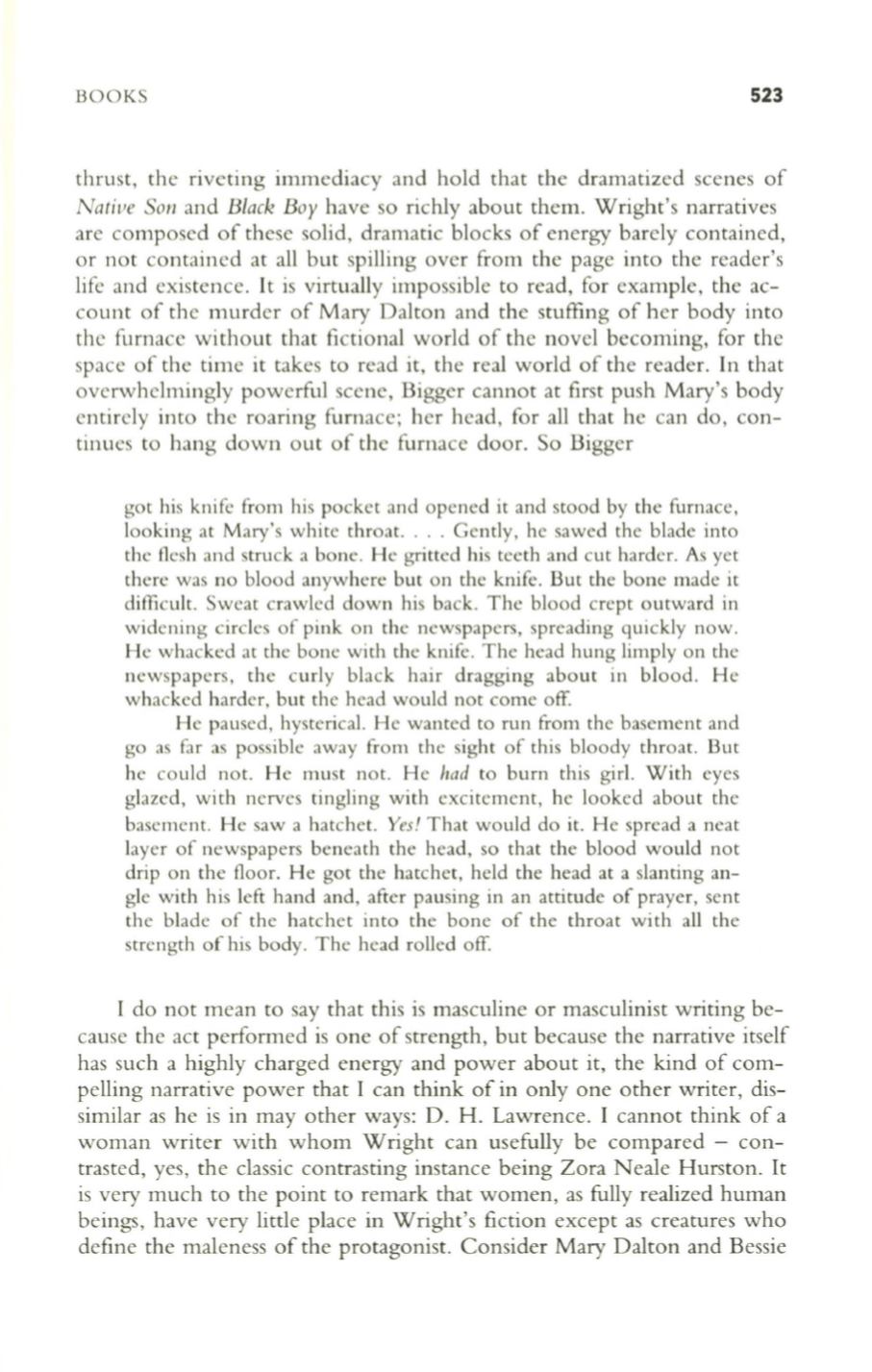
BOOKS
523
thrust, the riveting immediacy and hold that the dramatized scenes of
Nath'e Son
and
Black Boy
have so richly about them. Wright's narratives
are composed of these solid, dramatic blocks of energy barely contained,
or not contained at all but spilling over from the page into the reader's
life and existence. It is virtually impossible to read, for example, the ac–
count of the murder of Mary Dalton and the stuffing of her body into
the furnace without that fictional world of the novel becoming, for the
space of the time it takes to read it, the real world of the reader. In that
overwhelmingly powerful scene, Bigger cannot at first push Mary's body
entirely into the roaring furnace; her head, for all that he can do, con–
tinues to hang down out of the furnace door. So Bigger
got his knife from his pocket and opened it and stood by the furnace,
looking at Mary's white throat.. .. Gently, he sawed the blade into
the flesh and struck a bone. He gritted his teeth and cut harder. As yet
there was no blood anywhere but on the knife. But the bone made it
difficult. Sweat crawled down his back. The blood crept outward in
widening circles of pink on the newspapers, spreading quickly now.
He whacked at the bone with the knife. The head hung limply on the
newspapers, the curly black hair dragging about in blood. He
whacked harder, but the head would not come of[
He paused, hysterical. He wanted to run from the basement and
go as far as possible away from the sight of this bloody throat. But
he could not. He must not. He
had
to burn this girl. With eyes
glazed, with nerves tingling with excitement, he looked about the
basement. He saw a hatchet.
Yes!
That would do it. He spread a neat
layer of newspapers beneath the head, so that the blood would not
drip on the floor. He got the hatchet, held the head at a slanting an–
gle with his left hand and, after pausing in an attitude of prayer, sent
the blade of the hatchet into the bone of the throat with all the
strength of his body. The head rolled of[
I do not mean to say that this is masculine or masculinist writing be–
cause the act performed is one of strength, but because the narrative itself
has such a highly charged energy and power about it, the kind of com–
pelling narrative power that I can think of in only one other writer, dis–
similar as he is in may other ways: D. H. Lawrence. I cannot think of a
woman writer with whom Wright can usefully be compared - con–
trasted, yes, the classic contrasting instance being Zora Neale Hurston. It
is very much to the point to remark that women, as fully realized human
beings, have very little place in Wright's fiction except as creatures who
define the maleness of the protagonist. Consider Mary Dalton and Bessie


